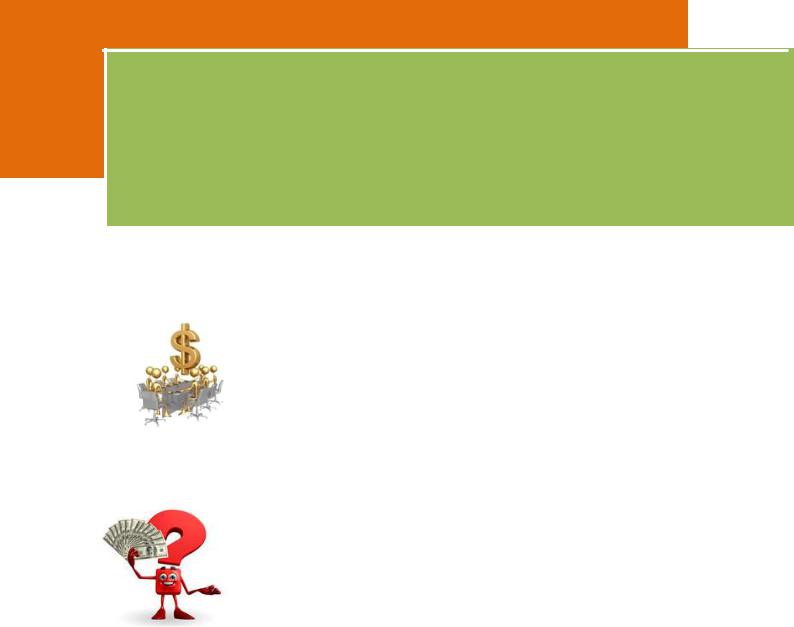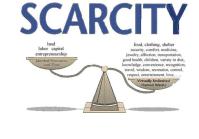
ПОСОБИЕ_English_for_economists_посл
..PDF
English for economists
Гайнанова Д.Р.
Хафизова А.А.
МИНИСТЕРСТВО ОБРАЗОВАНИЯ И НАУКИ РОССИЙСКОЙ ФЕДЕРАЦИИ
КАЗАНСКИЙ ГОСУДАРСТВЕННЫЙ АРХИТЕКТУРНО-СТРОИТЕЛЬНЫЙ
УНИВЕРСИТЕТ
Д.Р. Гайнанова, А.А. Хафизова
ENGLISH FOR ECONOMISTS
Учебное пособие для студентов очной формы обучения направлений подготовки
38.03.02«Менеджмент», профиль «Производственный менеджмент»,
08.03.01«Строительство», профили «Городское хозяйство и строительство»,
«Экспертиза и управление недвижимостью»
Казань
2015
2
УДК 802.0 (075)
ББК 81.2 Англ
Составители: Гайнанова Д.Р., Хафизова А.А.
English for economists: Учебное пособие / Д.Р. Гайнанова, А.А. Хафизова. – Казань: Изд-во Казанск. гос. архитект.-строит. ун-та, 2015. – 154 с.
ISBN
Печатается по решению Редакционно-издательского совета Казанского государственного архитектурно-строительного университета
Учебное пособие предназначено для студентов-бакалавров 1 курса дневной формы обучения направлений подготовки 38.03.02 «Менеджмент», профиль «Производственный менеджмент», 08.03.01 «Строительство», профили «Городское хозяйство и строительство», «Экспертиза и управление недвижимостью».
Основная цель учебного пособия – развитие и совершенствование навыков устной коммуникации и письменной речи в рамках предложенной тематики.
Рецензенты Доктор экономических наук, доцент кафедры экономики и предпринимательства в
строительстве института экономики и управления в строительстве КГАСУ Г.М. Харисова
Кандидат педагогических наук, доцент кафедры иностранных языков в сфере экономики, бизнеса и финансов института управления, экономики и финансов КФУ
Л.А. Валеева
УДК 802.0 (075)
ББК 81.2 Англ
© Казанский государственный архитектурно-строительный
университет, 2015
© Гайнанова Д.Р., Хафизова А.А.,
2015
3
CONTENT
Предисловие ………………………………………………………………………..........5
Unit 1. Economics. General Information …………………………………………...6-18
Text 1A. Defining Economics……………………………………………………..6 Text 1B. Opportunity Cost ………………………………………………………10
Text 1C. Microeconomics and Macroeconomics ………………………………..14 Final Tasks ………………………………………………………………………17
Unit 2. Factors of production ………………………………………………………19-32 Text 2A. Factors of Production ………………………………………………….19 Text 2B. Oil as a Natural Resource ……………………………………………...24 Text 2C. Technology and the Entrepreneur ……………………………………..27 Final Tasks ………………………………………………………………………31
Unit 3. Demand and supply ………………………………………………………..33-48 Text 3A. Demand ………………………………………………………………..33 Text 3B. Supply …………………………………………………………………38
Text 3C. Changes in Supply …………………………………………………..…43
Final Tasks ………………………………………………………………………47
Unit 4. Real Estate ……………………………………………………………….....49-65 Text 4A. Real Estate …………………………………………………………….49
Text 4B. Real Property ……………………………………………………….…54
Text 4C. Real Estate Appraisal ………………………………………………….58
Final Tasks ………………………………………………………………………63
Unit 5. Urban economics …………………………………………………………...66-79 Text 5A. Urban Economics ……………………………………………………...66 Text 5B. Five Principles of Urban Economics …………………………………..69 Text 5C. Green Urban Economy ………………………………………………...73 Final Tasks ………………………………………………………………………78
Unit 6. Principles of marketing ………………………………………………........80-96 Text 6A. Defining Marketing ……………………………………………………80
Text 6B. Basic Concepts Underlying Marketing …………………………….….84
Text 6C. Consumer Behavior: How People Make Buying Decisions? …………88 Final Tasks ………………………………………………………………………94
Unit 7. Introduction to principles of management ………………………….......97-115 Text 7A. Who are Managers? Levels and Types of Managers …………………97
Text 7B. The Functions of Managers ………………………………………….102
Text 7C. Organizational Structure ……………………………………………..107 Final Tasks ……………………………………………………………………..112 Unit 8. Cadastre ……………………………………………………………….....116-124 Text 8A. Cadastre ………………………………………………………………116
Text 8B. Land Registration System: History and Definitions …………………119 Final Tasks ……………………………………………………………………..123 Appendix ………………………………………………………….………………125-152
Список источников………………………………………………...........................…153
4
Предисловие
Данное учебное пособие предназначено для студентов экономического профиля технических вузов. Структура пособия определяется профессиональными аспектами деятельности специалиста в области экономики и бизнеса и представлена следующими темами: Economics. General Information, Factors of Production, Demand and Supply, Real Estate, Urban Economics, Marketing, Management, Cadastre.
Все разделы учебного пособия имеют единую структуру и включают следующие блоки: Before you start (введение), Reading (тексты по специальности), Language
(формально-тренировочные упражнения), Speaking (коммуникативно-содержательные упражнения), Writing (задания, направленные на формирование навыков письменной речи), Vocabulary (базовая лексика каждого раздела).
Базовые тексты представлены аутентичными описательными текстами, которые тематически связаны друг с другом и касаются различных сторон темы или расширяют ее.
При подборе текстов авторы исходили из методической концепции неразрывности процесса познания и развития навыков работы с текстовым материалом и навыков устной
иписьменной речи, а также опирались на принцип реализации междисциплинарных связей, когда студенты параллельно получают базовые экономические знания в лекционных курсах по экономическим дисциплинам.
Текстовый материал, предтекстовые и послетекстовые задания направлены на совершенствование речевых навыков студентов неязыковых специальностей путем обучения восприятию и осмыслению прочитанного текста, активизации словарного запаса
иречевых структур в процессе репродукции информативного содержания текста.
Все задания построены на активной лексике раздела, часть заданий построена на связных текстах небольшого объема, которые являются дополнительным источником информации по теме раздела. Помимо языковых заданий, даются задания на развитие навыков устной речи. Задания, предлагаемые в блоке Speaking, носят творческий характер и направлены на формирование коммуникативных навыков в условно-заданных речевых ситуациях, а также творческого мышления и умения формулировать собственное мнение.
Целью заданий блока Writing является формирование навыков академического письма. В приложении (Appendix) представлены аутентичные тексты, дающие дополнительную информацию по темам основных разделов. Тексты данного раздела могут быть использованы как для формирования навыков различных видов чтения, так и для развития речевых навыков.
5

Unit 1. Economics. General information
Text 1A
1. Before you start.
What is economics?
Why is economics important?
Why can we call economics ―a social science‖?
Can you name the main economic problems that modern society
faces nowadays? How can the knowledge of economics help solve them?
2. Read the words and learn them by heart. Make up your own
sentences with them.
1.Economics – экономика, народное хозяйство
2.Economy – хозяйство, экономика, экономия, бережливость
3.Economic – экономический, хозяйственный
4.To examine – исследовать, изучать, экзаменовать
5.Alternative – альтернатива, выбор
6.Available – доступный, имеющийся в наличии
7.To involve – включать, вовлекать
8.A scientific approach – научный подход
9.Investigation – исследование, расследование
10.Choice – выбор
11.Scarcity – недостаток, дефицит
12.Cost – цена, стоимость, затраты
13.To cost (cost, cost) – стоить, обходиться
14.To select – отбирать, выбирать
15.Opportunity cost – «цена выбора», альтернативная стоимость, стоимость упущенной возможности
6

16.Resource – ресурсы, средства
17.To produce – производить, создавать
18.Production – производство, изготовление
19.Housing – жилищные условия, жилищное строительство, обеспечение жильем
20.Practically – практически, фактически
21.To require – нуждаться (в чем-либо), требовать (что-либо)
22.To confront – сталкиваться, противостоять
23.Issue – выпуск, издание; вопрос
24.To give up smth. – сдаться, отказаться (от чего-либо)
25.To cut back on smth. – сокращать (расходы, потребление чего-либо)
26.To preserve – сохранять, хранить
27.A wilderness area – нетронутая местность, дикая местность
28.Good – товар, благо, польза
29.Service – услуга
30.To determine – определять, устанавливать
31.To employ – нанимать, предоставлять работу
32.Skilled – умелый, искусный, квалифицированный
33.Recycled – переработанный, использованный повторно
34.Raw materials – запасы сырья и материалов, сырьѐ
35.Representative – представитель
36.To complain – жаловаться
37.Consumption – потребление, расход
38.To allocate – назначать, распределять
3. Read the text 1A, translate it and compare your ideas in ex.1 with the
facts.
Defining Economics
Economics is a social science that examines how people choose among the alternatives available to them. It is social because it involves people and their behavior. It is a science because it uses, as much as possible, a scientific approach in its investigation of choices.
Scarcity, Choice, and Cost
All choices mean that one alternative is selected over another. Selecting among alternatives involves three ideas central to economics: scarcity, choice, and opportunity cost.
7

Scarcity
Our resources are limited. At any one time, we have only so much land, so many factories, so much oil, so many people. But our wants, our desires for the things that we can produce with those resources, are unlimited. We would always like more and better housing, more and better education – more and better of practically everything.
If our resources were also unlimited, we could say yes to each of our wants – and there would be no economics. Because our resources are limited, we cannot say yes to everything. To say yes to one thing requires that we say no to another. Whether we like it or not, we must make choices.
http://budirich.files.wordpress.com/2011 |
Scarcity and the Fundamental Economic Questions |
The choices we confront as a result of scarcity raise three sets of issues. Every economy must answer the following questions:
1.What should be produced? Using the economy‘s scarce resources to produce one thing requires giving up another. Producing better education, for example, may require cutting back on other services, such as health care. A decision to preserve a wilderness area requires giving up other uses of the land. Every society must decide what it will produce with its scarce resources.
2.How should goods and services be produced? There are all sorts of choices to be made in determining how goods and services should be produced. Should a firm employ a few skilled or a lot of unskilled workers? Should it produce in its own country or should it use foreign plants? Should manufacturing firms use new or recycled raw materials to make their products?
3.For whom should goods and services be produced? If a good or service is produced, a decision must be made about who will get it. A decision to have one person or group receive a good or service usually means it will not be available to someone else. For example, representatives of the poorest nations on earth often complain that energy consumption per person in the United States is 17 times greater than energy consumption per person in the
world‘s 62 poorest countries. Critics argue that the world‘s energy should be more evenly allocated. Should it? That is a ―for whom‖ question.
So, every economy must determine what should be produced, how it should be produced, and for whom it should be produced.
(Source: http://www.saylor.org)
8

4.Say if the sentences concerning Text 1A are true or false.
1.Economics is an exact science that deals with numbers and shapes.
2.Economics does not involve people and their behaviour.
3.Economics uses a scientific approach in its investigation of choices.
4.We have so much land, so many factories, so much oil, so many people, – so our resources are unlimited.
5.No matter whether we like it or not, we must make choices.
6.The first question that economy must answer is ―Where can we get money for production?‖
7.Every society must decide what it will produce with its scarce resources.
8.It is not important for a producer to know who will get his products and services.
9.A decision to have one person or group receive a good or service usually means it will not be available to someone else.
5.Answer the following questions.
1.Why can economics be called a science?
2.What ideas does selecting among alternatives involve?
3.How do you understand the idea of scarcity?
4.What are the three fundamental economic questions?
5.Why should we always make choices?
6.Can we say ―yes‖ to everything? Why?
7.Explain the idea of how should goods and services be produced.
8.How do you understand the idea of ―for whom should goods and services be produced‖?
6.Give English equivalents of the following words and word combinations from Text 1A.
Общественная наука, научный подход, дефицит, вариант (выбор из двух возможностей), жилищные условия, практически,
неограниченный, нравится нам или нет, комплекс вопросов; Что производить!? Как производить и для кого производить!? сокращение других услуг, здравоохранение.
9

7. Using vocabulary in ex.2 match the words with their definitions.
Word |
|
Definition |
|
|
|
1. economics |
|
a. the process of growing or making food, goods or materials, especially |
|
|
large quantities. |
|
|
|
2. choice |
|
b. a business whose work involves doing smth. for customers but not |
|
|
producing goods. |
|
|
|
3. scarcity |
|
c. things that are produced to be sold. |
|
|
|
4. production |
|
d. the study of how a society organizes its money, trade and industry. |
|
|
|
5. goods |
|
e. shortage of smth. and difficulty to obtain |
|
|
|
6. service |
|
f. to make smb. do or have smth., especially because it is necessary |
|
|
according to a particular law or set of rules. |
|
|
|
7. resource |
|
g. an act of choosing between two or more possibilities. |
|
|
|
8. to require |
|
h. to give smb. a job to do for payment. |
|
|
|
9. to employ |
|
i. the act of using energy, food or materials. |
|
|
|
10. consumption |
|
j. a supply of smth. that a country, an organization or a person has and |
|
|
can use, especially to increase their wealth. |
|
|
|
|
8. Discuss with the group the following topics: |
|
|
|
How do geographical, cultural, ethnic peculiarities influence a |
|
country‘s economy: what to produce, how to produce, and for whom? |
|
|
|
Find various definitions and quotations about economics and discuss |
|
them with the group (use internet for additional information). |
|
For additional information read the text “Scarcity” in Appendix I and discuss it.
Text 1B
1. Before you start.
What do you think opportunity cost is?
What influences you when you have to make choices?
10
